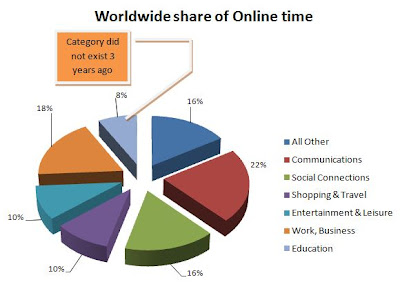Research has often put excessive demands on the virtual infrastructure of any organization. If we look at the significant innovations that have come out in the last decade most of them were created because of the need for the research community to collaborate. Tim Berners Lee who is the father of world wide web (www) created the network so that research scientists at CERN could share information.
Similarly Google came out of the need for Stanford Research scientists to have access to all research data.
In the current context Social media could very well be the next step. This will not only encourage greater collaboration between scientists across the globe but also lead to cross functional participation in a particular activity.
One can imagine the possibilities if engineers, Ecologists, Chemical Engineers and designers could collaborate across continents on a new automobile technology.
Not only the knowledge sharing would be fast, it will also be real time and all the scientists require is internet connection. This will also help scientists to not to depend on large and expensive infrastructure.
Secondly activities like market research can be carried out on social media in real time as well. Most networks like LinkedIn already have the facility of setting up polls on the sites. A more advanced application like survey Monkey can be sued to create a questionnaire and it can circulated among the target cohort. Also as some social networks have logical grouping like Google Plus which has circles, this activity is less time consuming.
But there are some barriers to extensive use of Social Media for research
1) Security- Data Security and Data Integrity remains the biggest challenge. All Social Networks have security measures but they are not adequate to protect the integrity of scientific data.
2) Volume - If the volume of data to be exchanged is huge, social networks again could not be used for the activity. Some of the scientific data runs into Terra bytes and would require dedicated servers of their own.
There could be other challenges and this is something that may require a collaborative discussion.
So I would like to hear your views on the same. How can social Networks be best leveraged for research work?
Dr Vikram Venkateswaran is a marketing professional with almost 10 years of experience. He can be followed on twitter @drvikram. He also blogs at www.doctersoccer.blogspot.com






